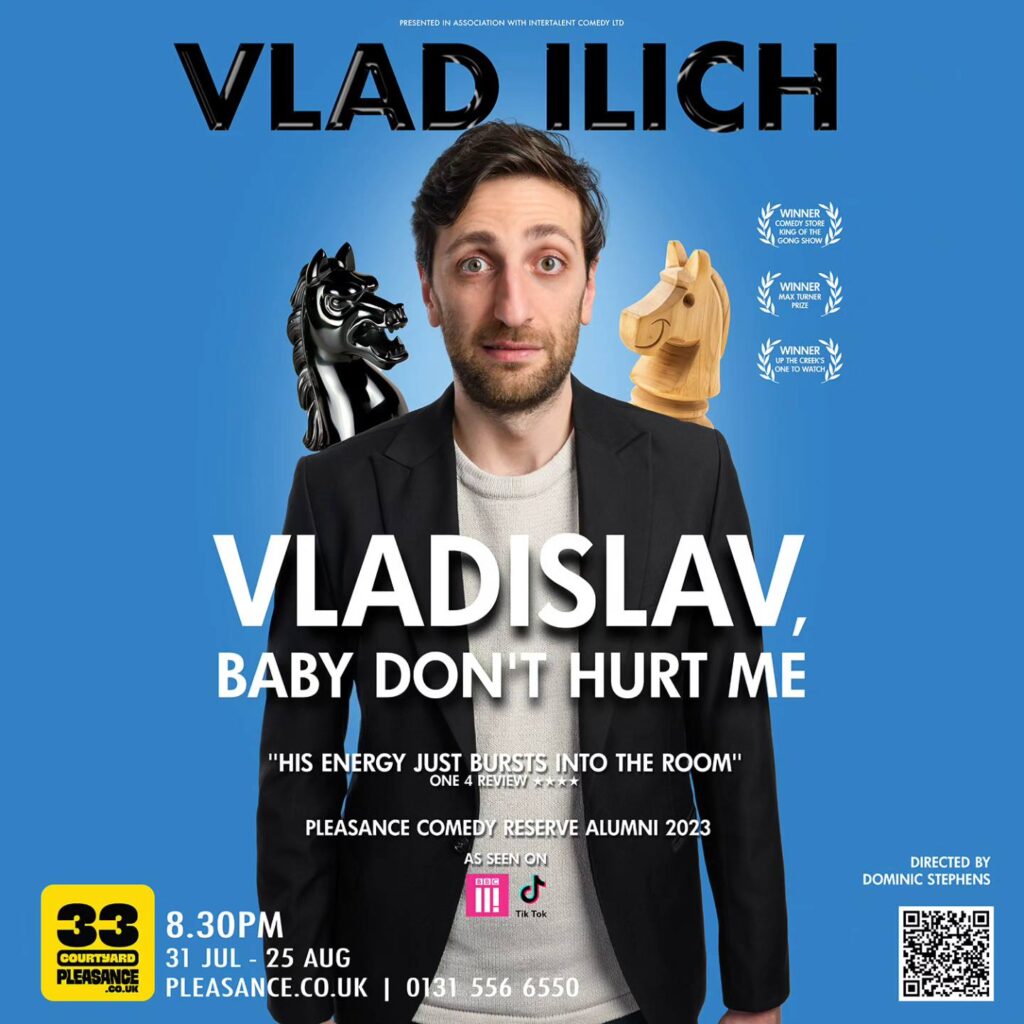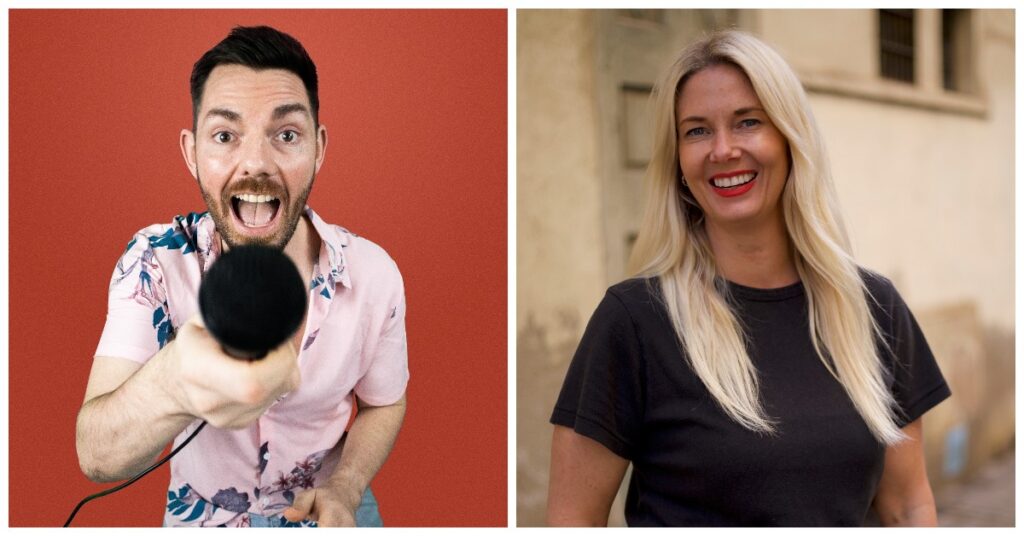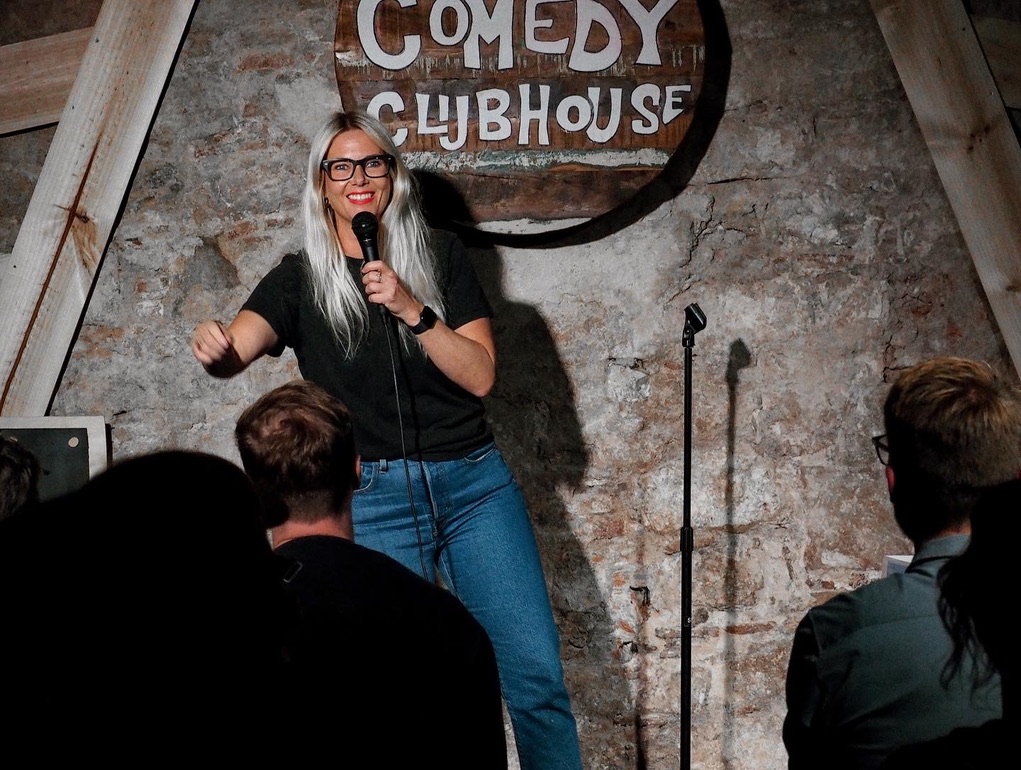Vlad Ilich: Vladislav, Baby Don’t Hurt Me Review by Mariah Girouard
In his show, Vladislav, Baby Don’t Hurt Me, Vlad Ilich enters the stage and immediately introduces himself by saying, “Hello, I am an immigrant,” before identifying the other immigrants in the room. Vlad is Balkan from former Macedonia, now called North Macedonia (even though South Macedonia doesn’t exist). Knowing that most members of the audience wouldn’t be able to point to his country on a map, Vlad gives a quick and witty history lesson about his country’s origin. This includes war stories, silly stereotypes about Balkan birthdays, and a glimpse at Soviet cartoons. His love of chess was born from where he stood, economically and historically, in his country, and this, we learn, is the crux of his story.
Though there are many chess players in the audience, you don’t have to know a thing about chess to be invested in Vlad’s story. He gives the audience a brief introduction to the basics of the game, somehow managing to make the most boring game on Earth (his words, not mine!) riveting. With an intelligent mix of dark humor and storytelling, Vlad takes the audience on a journey through falling in love, moving to the UK, and getting ready to play in the most important chess tournament of his life, before life itself comes to a head.
Throughout the performance, several interruptions that might have thrown a less experienced comedian off their game only make Vlad’s bits that much more compelling. When a group of people walk out exclaiming that they are“late for another show”, Vlad uses the opportunity to bring in jokes about Balkan cousins, claiming they are always trying to sabotage someone. This level of comedic expertise is a driving force throughout the show, with Vlad using these unexpected happenings as an opportunity to further connect with the audience.
Despite his quick thinking and clever handling of the audience, there are moments where it feels like Vlad is insecure and his self-deprecation feels genuine, and less like a joke. This is further heightened when he repeatedly asks the audience for permission to “go darker” with his jokes as if he wasn’t confident that we would enjoy them. Don’t get me wrong, I appreciate asking for consent, but a part of me wishes he would trust the audience to respond appropriately to his material. The material itself is well-written and progressively pushes the envelope. Vlad is a brilliant and confident performer, and I wish that it could be as apparent to Vlad himself as it is to the audience.
Baby Don’t Hurt Me is more than a story about chess; it’s about growing up during conflict and fostering a passion to get through it. It’s about war, immigration, and being a devoted son. But most importantly, it’s about being brave and making the moves one has to make before making the moves one wants to make. If you love comedy with heart, don’t miss Baby Don’t Hurt Me.




